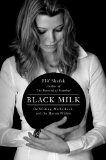 I’m sitting in Haifa’s apartment when the talk turns to male-female roles. “It’s hard for women,” she sighs. “Those mens (sic) get everything they want. We have to give up so much, to take care of houses and children. My art, my ideas…” she sighs again and lets the sentence trail off. Haifa is an Iraqi refugee in her mid-60s. Her husband is a renowned artist, famous in his own country and region. Haifa feels that she has lost much of herself, and promotes only her husband. At the same time, her love for him is evident and even ferocious.
I’m sitting in Haifa’s apartment when the talk turns to male-female roles. “It’s hard for women,” she sighs. “Those mens (sic) get everything they want. We have to give up so much, to take care of houses and children. My art, my ideas…” she sighs again and lets the sentence trail off. Haifa is an Iraqi refugee in her mid-60s. Her husband is a renowned artist, famous in his own country and region. Haifa feels that she has lost much of herself, and promotes only her husband. At the same time, her love for him is evident and even ferocious.
Although my society offers me much more in the way of artistic outlets, I can still relate to what Haifa says. Turkish writer Elif Shafak faced the same fears in the years before her daughter was born, and she articulates them in her new memoir Black Milk: On Writing, Motherhood, and the Harem Within Although the title refers to the severe postpartum depression she experienced, the majority of the book deals with her wrestling with the idea of motherhood, seeking answers in a variety of places.
Shafak is a talented and imaginative writer, and her description of the different aspects of her character as finger-sized women running around inside her, arguing and competing and staging coups, is delightful. Her opening chapter is hysterical–she describes herself as a young single, feeling appalled and distant from her squished seat next to a very pregnant woman with two young boys who are continually shooting each other with toy guns. She wants to write “The Single Girl’s Manifesto” so she borrows a sheet of paper from a businessman next to her. Later, she asked him what company is represented in the logo at the top of her manifesto. It turns out to be a company that makes pumps for expressing breast milk!
Read more of my review of Black Milk at Kirkus Reviews Blog.
We are proud to be a part of the Kirkus Bloggers Network. You can subscribe to the Kirkus Book Blogger Network feed. Go to the home page, and then click the subscribe button to get the feed in your favorite feed reader.